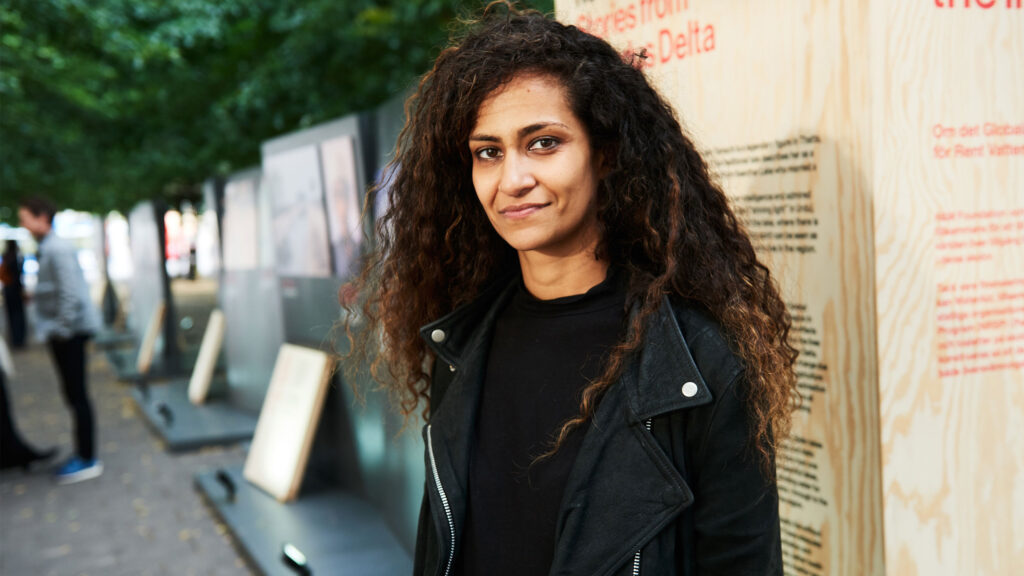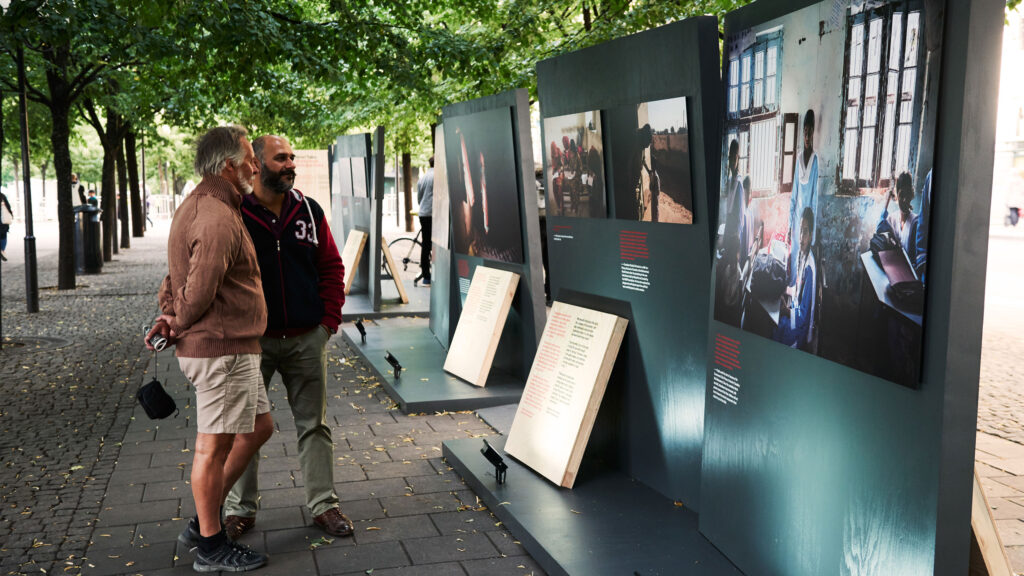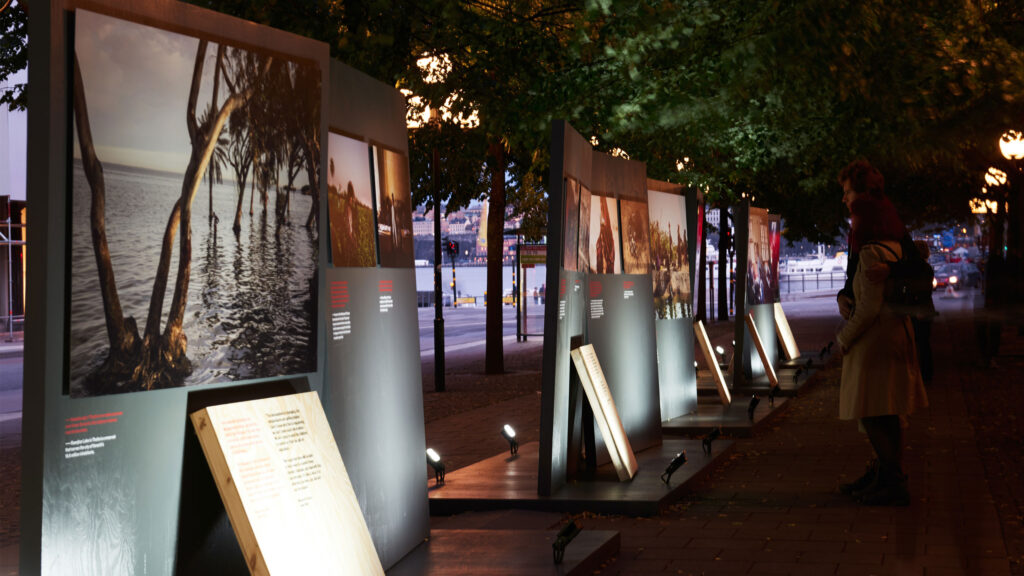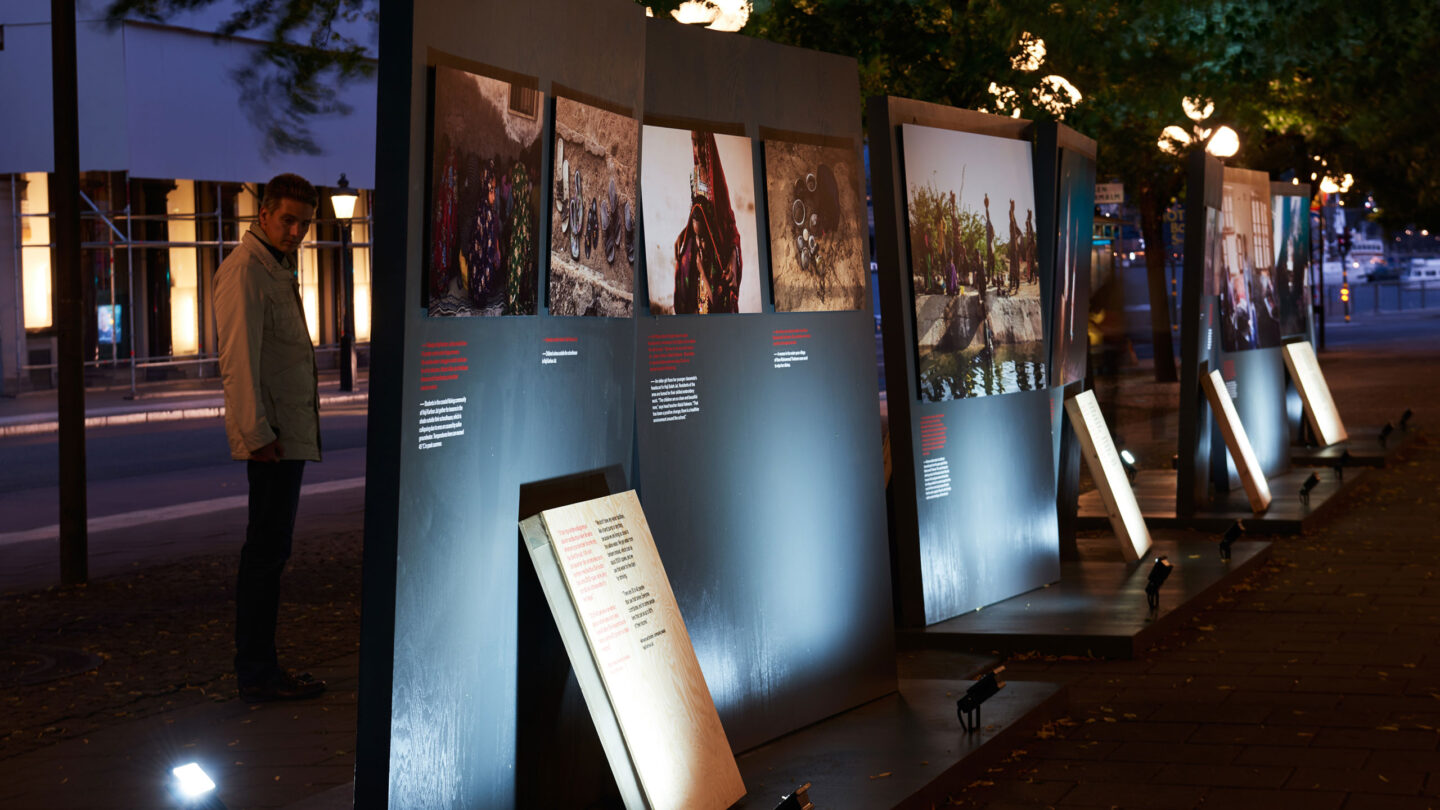Award-winning photographer Malin Fezehai travelled with WaterAid to the Thatta region in southeastern Pakistan to document the effects of climate change and water scarcity on the lives of schoolchildren living in the Indus River Delta. Pakistan is highly vulnerable to climate change due to its geography, high dependence on agriculture and limited water resources. Flooding, salinisation of groundwater and high temperatures are all on the increase, with potentially devastating consequences.

Malin Fezehai, photographer 



With the 31 images in this exhibition, Malin took us on a journey through the canals and inlets of the Indus River Delta, as they flow from one of Pakistan’s largest and most beautiful lakes, the Keenjhar – the source of drinking water for Karachi’s 16.6 million inhabitants – through to the schools and communities in the region.
GLOBAL PROGRAM FOR CLEAN WATER
Today, 650 million people globally live without safe water, and 2.3 billion don’t have adequate sanitation. But when water, sanitation and hygiene education is improved in schools, better health brings improved attendance and it creates a better learning environment that enhances performance. Gender equality is improved, since girls do not need to drop out of school or attend sporadically when they have their periods and there are no toilets available.
“Safe, clean water and adequate sanitation are basic human rights. Through engaging imagery we can show the more serious underlying issues that children face when they do not have these available at school.”
— Diana Amini, Global Manager H&M Foundation
The WaterAid and the H&M Foundation partnership Global Program for Water aimed to provide sanitation, water and hygiene promotion in schools, with a view to improving health and education and transforming children’s futures. The first phase, taking place 2014-2017, gave 250,000 children globally access to clean water and sanitation in schools. One of the areas supported by the Global Program was Thatta.
